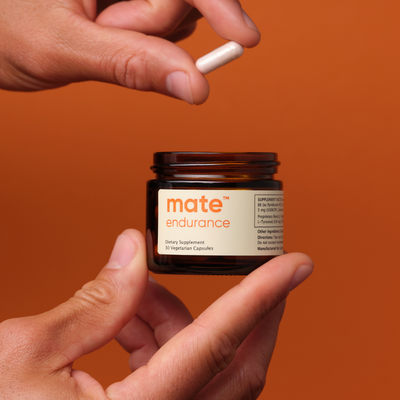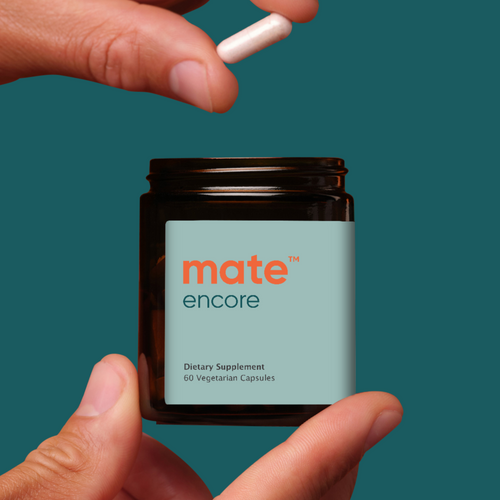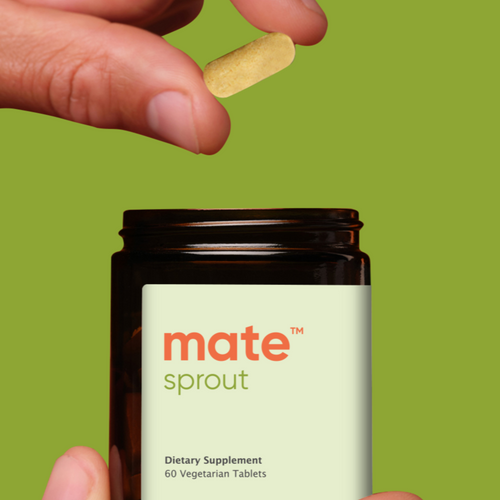How COVID-19 May Be Impacting Your Sex Life and Causing PE
It’s tough to imagine how COVID-19 and one’s sexual life may be interrelated, but the toll COVID-19 has had on broader society and relationships in particular suggests that there may be some degree of impact. In particular, for men, the COVID-19 pandemic may play some role on overall sexual wellness, from issues such as erectile dysfunction to premature ejaculation.
The first COVID-19 case was reported in the second half of 2019. From there, it began an initially slow but eventually rapid spread across the entire world, leaving its footprints on almost all aspects of our daily lives. While the virus’ impact on the physical health of individuals and the socio-economic impact on society has been discussed at large, little or no attention has been paid on its impact on our sexual health and sexual relationships as a whole.
COVID-19’s Impact on Sexual Health
Sexual relations have suffered a serious blow as a result of the pandemic’s radical change on social relations in the world. First, social isolation restrictions imposed across the world have led to less intermingling amongst individuals and the sparking of new relationships. Additionally, the pandemic has caused great distress amongst a variety of segments of the population, from acute anxiety to uncertainty in front of a real and global threat against life to added grief from many lost lives. These feelings of distress and anxiety have significant negative impacts on sexual life, leading to more depression and less sex. In fact, this could lead to a vicious cycle, as the added stress and anxiety leads to the exacerbation of sexual dysfunctions such as premature ejaculation, which in turn leads to a decreased desire for sex.
Premature Ejaculation’s Impact Prior to the Global Pandemic
Before the pandemic, premature ejaculation (also referred to as “PE”) impacted about 30% to 40% of men. Premature ejaculation refers to a man’s inability to delay his orgasm and ejaculation, leading to uncontrolled ejaculation either before or shortly after sexual penetration and with minimal sexual stimulation, before the individual desires thereby preventing both partners from enjoying a satisfying sexual experience. PE is also one of the most common forms of male sexual dysfunction.
An individual might be diagnosed with premature ejaculation if he:
- Always or nearly always ejaculates within one minute of penetration
- Is unable to delay ejaculation during intercourse all or nearly all of the time
- Feels distressed and frustrated and tends to avoid sexual intimacy as a result of always finishing too quickly
Although several factors such as early sexual experiences, sexual abuse, poor body image, biological causes, erectile dysfunction, etc. can cause PE, it has been established that emotional or mental strain in any area of one’s life can play an outsized role in premature ejaculation, limiting one’s ability to relax and focus during sexual encounters. Consequently, the COVID-19 pandemic, filled with a whole host of stress factors, may be driving the increase in PE through a variety of factors.
COVID-19’s Impact on Premature Ejaculation In Particular
One of the most obvious impacts of the pandemic is the devastating psychological implications of the pandemic, which greatly affect the sexual realm. Research has shown that the most prevalent symptoms in those who have been quarantined are depressed mood, irritability, fear, and nervousness. Since daily activities such as sexual practices are highly related to a person's quality of life and mental health, it is not surprising that sexual lives are being affected. While more time at home may lead to an increased number of sexual experiences, greater distress and anxiety stemming from the global pandemic may be exacerbating conditions such as premature ejaculation.
Another key condition is the frustration and boredom of confinement, loss of routine, and social and physical contacts. This is not only a cause of immediate anxiety but also of long-term distress.
Furthermore, some stressors that are emerging as a result of COVID-19, such as unemployment, work/domestic overload, and the restructuring of family roles, are specific triggers for negative thoughts and behaviors, which could negatively impact one’s sex life.
It is important to note that these stress factors affect individuals in different ways, depending on if one is married, single, or in a relationship with someone they do not live with. For example, for individuals who are married and living in the same household, spending excessive amounts of time together at home may negatively impact one’s routine, thereby negatively spilling over into one’s sexual relationship. For those who are single, stresses of the economic impact of COVID-19, the negative emotional impact from quarantine, or fear of viral transmission through close relationships, may all lead to decreased sexual function as a result of potential erectile dysfunction and premature ejaculation.
How COVID-19 May Impact Married Couples and Singles’ Sex Lives Differently
For married couples, intimacy can be disrupted by the presence of children at home 24/7 as a result of the closure of schools. Or in some cases, there is an exacerbation of quarrels, and negative emotions between couples, as a result of being forced to share the same limited space throughout the day. This can weaken the couple’s bond or negatively affect sexual intercourse.
For singles who are not in a committed relationship, limitations to social relationships can make it extremely difficult to engage in occasional one-off sexual relations since there is not as great of an opportunity to meet new partners. Also, the fact that some people may have the virus and not yet have symptoms during the early incubation phase could be a cause of anxiety and fear for those who are single and in the active search for a partner.

In the case of those in a stable relationship but not living together, the inability to satisfy their strong sexual desires could lead to frustration, especially for couples who are not willing to engage in “Facetime sex.”
A Vicious Cycle: Anxiety, Stress and Premature Ejaculation
One of the propagating factors of premature ejaculation or sexual dysfunctions in general, is the vicious cycle of stress and anxiety that comes with it. This is because by having the issue at the top of mind during one’s sexual encounters, the issue is further worsened. As such, one of the key strategies to addressing premature ejaculation is to train the mind to calm itself and relax through activities such as meditation, yoga, hikes, walks, jogs, exercise or personal “me” time. All these types of activities can help to alleviate stress and anxiety
Additional Strategies to Address Premature Ejaculation
In addition to training the mind, there are other strategies that can be used to address premature ejaculation, especially when that PE is primarily caused by stress and anxiety. Cutting down on the use of alcohol, tobacco, or drugs can improve one’s sense of ejaculatory control. For men who are in long-standing relationships with a trusted partner, communicating with your partner about your sexual concerns, desires and sources of stress and anxiety are key. This increased communication increases the chances of a positive experience.
Certain techniques may also be recommended by your physician to help delay ejaculation. For example, you may learn the stop-start technique, in which you engage in sexual intercourse until your approach orgasm, stop for a few minutes, and then continue again. Other strategies including identifying and controlling the sensations that lead up to orgasm and learning to communicate with your partner to slow or stop stimulation when one gets close to ejaculating. Additionally, you can try using a condom to reduce sensation to the penis or trying a different position (such as lying on your back) during intercourse. Counseling or behavioral therapy may help reduce anxiety related to premature ejaculation.
Medical Supplements and Solutions for the Treatment of Premature Ejaculation
Traditionally, topical numbing sprays and creams or prescription drugs have been used to address PE. However, these “solutions” come with a host of significant negative side effects, from decreased sex drive, to loss of erection or even delaying his partners’ ability to achieve an orgasm due to the spreading of the numbing spray.
There are, however, natural solutions without lasting side effects, such as mate endurance. mate endurance is a natural, 100% drug-free, once-daily supplement intended to help address premature ejaculation. It is backed by scientific research and has a statistically significant effect on increasing men’s overall sexual satisfaction and decreasing sexually-related distress. mate endurance uses nine essential ingredients to help address PE and helps make the good times last longer.
COVID-19 & Premature Ejaculation
As we’ve seen, COVID-19 may indeed be having a negative impact on sexual relations as a whole, and leading to increased instances of premature ejaculation. The consequences of fear, anxiety and stress on sexual dysfunction as a result of quarantine and the global pandemic cannot be overemphasized. It is important to learn how to cope with the stress in a healthy way and to avoid its adverse effects. During times of increased social distancing, try to still maintain social connections and pay extra attention to your mental health. While phone calls or video chats can help you and your loved ones feel socially connected and less isolated, there are healthy ways to cope with the stress from COVID-19 including:
- Knowing where and how to get treatment for COVID-19
- Taking breaks from watching, reading or listening to news stories
- Taking care of your body by exercising regularly, eating healthy and getting plenty of sleep.
With the combined efforts of the above listed recommendations, the negative effects of the pandemic on your sex life should be reduced, thereby limiting the likelihood of having to deal with the consequential sexual dysfunctions that this global pandemic may have unintentionally caused.
This article is for informational purposes only and does not constitute medical advice. The information contained herein is not a substitute for and should never be relied upon for professional medical advice. Always talk to your doctor about the risks and benefits of any treatment.















